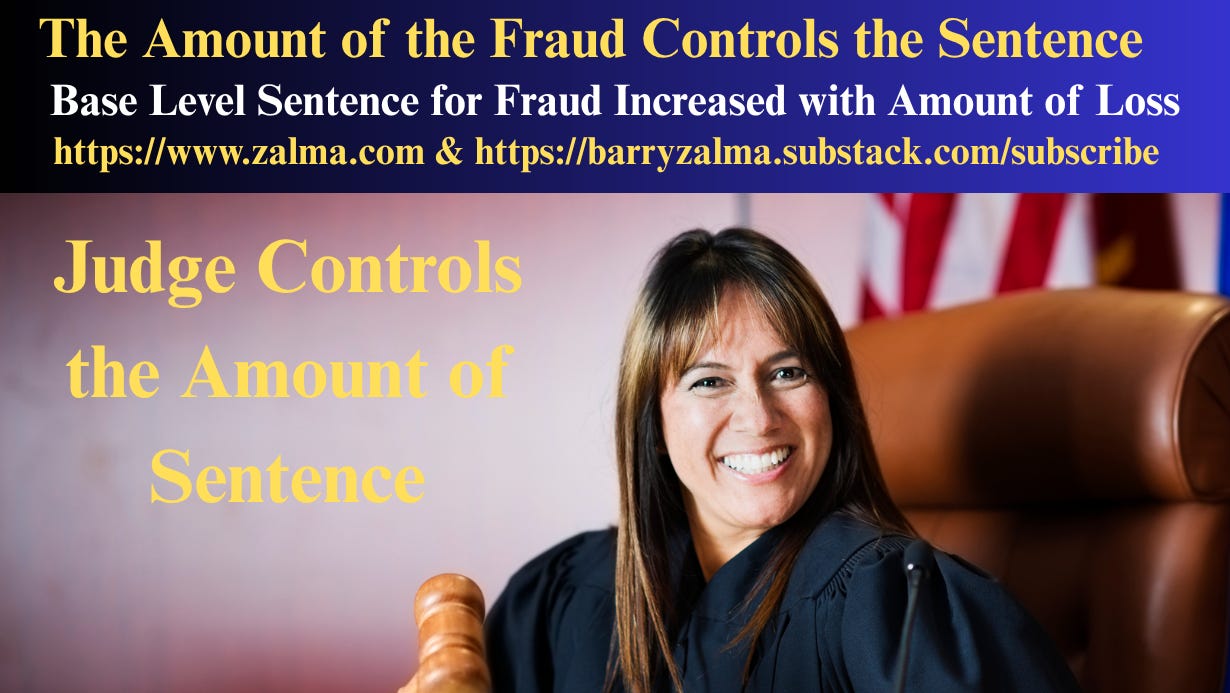The Amount of the Fraud Controls the Sentence
Base Level Sentence for Fraud Increased with Amount of Loss
Read the full article at https://lnkd.in/g8ZvRS-w, see the video at https://lnkd.in/gk9pDXd9 and at https://lnkd.in/giHraUSt, and at https://zalma.com/blog plus more than 5200 posts.
Post 5229
Judge Controls the Amount of Sentence
In United States v. Lopez (No. 2:23-cr-00055-CDS-MDC, D. Nev.), defendant Eduardo “Edward” Lopez was convicted of wire fraud for intentionally omitting a DOJ antitrust investigation into his company. Lopez received $10.459 million via wire transfer on December 23, 2021.
Parties’ Positions:
Defense (Lopez):
Argued no loss enhancement applies (base offense level remains 7). Lopez emphasized no intent to cause loss, supported by the purchase agreement’s “true-up” process.
Government:
Seeks +20 levels, arguing intended loss equals the $12.5 million purchase price (as Solace would not have bought CHH if informed). A
Legal Framework:
Guideline Basics:
Base offense level for wire fraud is 7 (§ 2B1.1(a)(1)). “Loss” (greater of actual or intended) increases levels; use gain as proxy if loss is indeterminable (§ 2B1.1 cmt. n.3(B)).
Actual Loss:
Reasonably foreseeable pecuniary harm resulting from the offense.
Court’s Reasoning and Ruling:
Rejects Lopez’s “no financial harm, no loss” view: It ignores offense seriousness and culpability (§ 2B1.1 purpose). Fraud’s collateral risks (e.g., Solace losing licensing, sister companies affected) were severe, per trial testimony (Solace would have walked away if informed).
The court also rejected full government request: Intended loss ($12.5M) and post-fraud legal fees ($3.8M) are speculative/improper here.
This triggers +20 levels (§ 2B1.1(b)(1)(K)). The court also Overruled both parties’ extremes; sustains government objection in part. New offense level: 7 (base) + 20 = 27.
This ruling balances guideline ambiguity with evidence, prioritizing culpability over unproven hypotheticals, aligning with Ninth Circuit precedent emphasizing fraud’s full scope. Sentencing to continue based on this.
ZALMA OPINION
People who commit fraud are, by definition, not honorable people. In this case the defendant wanted the District Court to sentence him at the base level for fraud while the DOJ wanted it at a higher level because the defendant received almost $10.5 million as a result of his fraud. The District court provided a Solomon-like decision by agreeing with some of the DOJ’s allegations and some of the defendants requests and decided to balance the guidelines with evidence and emphasizing the full scope of the fraud.
Go to Barry Zalma videos at Rumble.com at https://lnkd.in/gRthzSnT; Go to Barry Zalma on YouTube- https://lnkd.in/g2hGv88; Go to the InsuranceClaims Library – https://lnkd.in/gwEYk.




